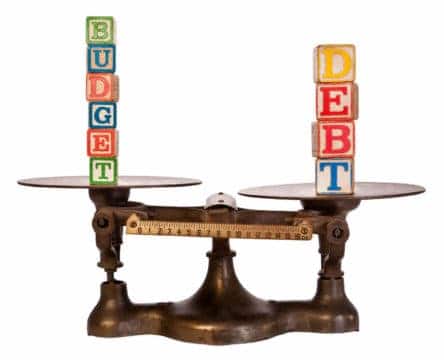
The best way to avoid falling into debt is to learn from past mistakes and make wiser financial choices. The key to avoiding debt is to review previous financial decisions and develop strategies that prevent it from happening. Creating and sticking to a budget is crucial for avoiding overspending and ensuring expenses are within one’s means.
Building a financial safety net by saving for unexpected expenses helps avoid reliance on credit cards or loans during emergencies. Understanding how to stay out of debt includes using credit cards strategically by paying off balances monthly and leveraging rewards programs without incurring debt. Minimizing auto loans and auto-related credit card debt by opting for shorter loan terms and saving for substantial down payments reduces financial strain.
Good debt, like mortgages or student loans, carries risks and must be managed carefully. Monitoring bills and making timely payments prevent late fees and preserve a good credit score, essential for favorable credit terms. Only borrowing what is necessary and avoiding unnecessary loans help maintain financial flexibility and explain how to avoid debt.
Table of Contents
1. Learn from past mistakes
Learning from past mistakes is essential to staying out of debt and having a stable financial future. It entails reviewing past financial choices to comprehend how debt accrued and spotting trends that led to financial difficulties. Individuals determine whether they are making minimum payments, overspending on discretionary purchases, or experiencing unanticipated expenses that result in debt by checking credit card accounts and spending habits. Reflecting on past sacrifices to pay off debts motivates individuals to avoid making similar mistakes in the future.
Understanding the causes of debt is critical. Identifying the fundamental causes, whether caused by job loss, medical bills, or other unforeseen circumstances, facilitates developing strategies to prevent similar situations. Effective money management depends critically on creating and rigorously observing a budget. Individuals lower their risk of incurring new debt by allocating expenses to debit cards or cash rather than using credit. Saving money all year to cover major yearly bills like taxes or insurance helps avoid using credit cards for unforeseen, large-scale purchases.
Learning from past mistakes helps individuals avoid financial traps and instills a sense of financial responsibility. Make wise choices and give financial well-being a priority. Individuals avoid getting back into debt by regularly reviewing spending patterns and modifying budgets as needed. Proactive debt management protects against the negative effects of debt, such as high interest rates and tarnished credit, and fosters long-term financial stability.
The action plan to cut and reduce spending entails implementing strict budgetary measures, an in-depth examination of past financial behaviors, and comprehending the underlying causes of debt accumulation. The all-inclusive strategy gives individuals the skills and self-control to avoid debt and attain financial stability. Individuals establish a secure financial future and circumvent the dangers of debt by making proactive decisions and learning from their past mistakes.
2. Stick to a budget
Sticking to a budget means adhering to a predetermined spending plan to prevent debt accumulation and overspending. It involves analyzing income and expenses to ensure individuals live within their means. It prevents the buildup of debt, which is challenging to pay off and often carries significant interest costs.
Sticking to a budget is essential for several reasons. It helps prevent overspending, a common path to debt. Keeping spending within limits prevents individuals from borrowing money or maxing out their credit cards. A budget enables individuals to allocate funds for financial objectives, such as debt repayment, emergency savings, and wealth accumulation. The systematic approach to spending and saving encourages financial discipline, fostering better financial habits over time.
Sticking to a budget reduces financial strain. Knowing spending limits provides peace of mind and lessens the stress of living paycheck to paycheck. It emphasizes the value of making informed decisions and prioritizing financial well-being, cultivating a sense of financial responsibility. Periodically evaluating and adjusting the budget ensures it remains realistic and aligned with goals, allowing individuals to adapt to changes in their financial circumstances.
Track income and expenses to stick to the budget. Monitor all revenue streams and fixed and variable costs. Budgeting tools such as apps, spreadsheets, or pen and paper help individuals stay on top of their spending. Develop a budget that includes essentials, debt repayment, savings, and discretionary spending based on the information.
Prioritize necessary costs, such as housing, utilities, food, and transportation. Limiting discretionary spending on non-essential items, like entertainment and dining out, helps individuals stick to their budget. Automating savings and debt payments ensures that individuals consistently save a portion of their income and make timely payments, avoiding late fees and additional stress.
Maintaining the spending plan requires routinely examining the budget and making necessary adjustments. This allows individuals to track progress and modify their budget in response to changing priorities or financial circumstances. Finding ways to cut expenses and increase income, such as reducing subscription services or taking on a side project, improves the financial situation.
Making a conscious effort to stick on the budget helps individuals avoid debt, achieve their financial goals, and ensure a healthy financial future. It safeguards against the bad consequences of debt and promotes long-term financial stability.
3. Build your financial safety net
Building your financial safety net means saving money for unforeseen costs to keep you out of debt. The safety net, or an emergency fund, provides the financial shield to cover unexpected expenses without using credit cards or loans.
Start building the financial safety net by saving money previously set aside for debt repayment. Redirect funds from credit cards, student loans, or tax payments into savings instead of spending. Regularly putting aside the money gradually builds up a sizable Emergency Fund.
Building a financial safety net is critical because it keeps individuals from getting into debt when unexpected expenses arise. Having funds to cover unforeseen costs like medical bills, auto repairs, or job loss avoids reliance on credit, which results in high-interest debt. An Emergency Fund gives individuals financial stability and peace of mind, allowing them to handle unexpected events without financial stress.
Follow these six steps to build a financial safety net: First, transfer funds from debt repayment to a designated savings account. Second, set aside three to six months of living expenses for emergencies. Third, establish automatic transfers from the checking account to ensure consistent savings. Fourth, reduce discretionary spending to increase the savings rate.
Fifth, the savings progress must be reviewed often, and contributions must be adjusted to meet objectives. The savings strategy must be re-evaluated after significant life changes, such as a job shift or large purchase, to ensure it meets needs. Lastly, increasing income, such as getting a second job or asking for a raise, helps the Emergency Fund grow faster.
Building a financial safety net is a deliberate effort to prevent debt, increase financial security, and ensure a more stable financial future. Proactively addressing debt protects against its detrimental effects and promotes long-term financial stability.
4. Use credit cards strategically
Using credit cards strategically refers to responsibly utilizing credit cards to earn rewards and benefits while avoiding debt. It involves viewing credit cards as financial tools rather than quick cash sources.
Pay the credit card balances monthly to leverage credit card perks and convenience without paying interest. Utilize credit card reward programs by choosing cards that offer valuable benefits on regular expenses like groceries, gas, or online shopping, such as cashback, points, or miles. It allows individuals to benefit without increasing overall expenditure.
Planning for significant purchases is crucial. Save money beforehand and use a credit card for payment, ensuring individuals earn rewards while promptly paying off the balance. Avoid impulsive purchases by monitoring spending habits and refraining from unnecessary charges that lead to debt.
Prudent credit card use is required to maintain financial discipline and avoid debt traps. Excessive credit card use escalates into high-interest debt, lower credit scores, and financial stress. Managing credit cards responsibly helps build a strong credit history, improve credit scores, and earn rewards without incurring debt. The approach ensures financial control and flexibility, preventing pitfalls like interest charges, late fees, and negative impacts on overall financial health.
Evaluate the current credit card usage and identify areas for improvement before implementing the strategy. Spending habits and rewards programs must align when choosing a credit card. Create a budget and plan for significant expenses to ensure monthly payment. Automate credit card payments to avoid late fees and missed deadlines. Monitor statements regularly to adjust spending habits as needed and maintain financial discipline.
Understanding “How Long Do I Have To Pay Off A Credit Card Balance?“ is crucial. Awareness of billing cycles and deadlines facilitates effective payment management, preventing interest costs and preserving a positive credit history. These strategies enable individuals to maximize credit card benefits while sidestepping debt traps.
5. Minimize auto loans and auto-related credit card debt
Minimizing auto loans and auto-related credit card debt is a strategic approach to preserve financial stability and avoid debt traps. Short-term loan terms, typically 3 to 5 years, are crucial to reducing auto loans and associated credit card debt. They facilitate faster repayment and lower overall interest costs, ensuring manageable monthly payments and reducing the risk of negative equity if the vehicle needs early trade-in. Comparing vehicle loan rates from different lenders helps secure lower interest rates, potentially saving significant money over the loan term compared to dealer-arranged financing.
Avoiding the accumulation of high-interest credit card debt is paramount. Refrain from using credit cards for auto-related expenses and establish an emergency fund for unexpected car costs. The proactive approach ensures financial preparedness without resorting to expensive debt.
Minimizing auto loans and auto-related credit card debt is crucial for three reasons. First, it reduces the overall cost of vehicle ownership by lowering interest expenses and accelerating repayment, alleviating financial stress. Second, it allows individuals to redirect financial resources towards savings, investments, or other goals, enhancing overall financial well-being. Lastly, maintaining lower debt levels provides greater flexibility to manage unexpected financial challenges such as job loss or medical emergencies.
Create a detailed plan to pay off existing debt balances to implement the strategy effectively. Research and compare vehicle loan options to secure the most favorable rates and terms. Prioritize saving for a substantial down payment before purchasing the next vehicle to minimize borrowing needs. Develop and adhere to a comprehensive budget that includes provisions for auto-related expenses, ensuring financial discipline. Consider buying a reliable used or certified pre-owned vehicle to reduce the need for a large loan. Establish and maintain an emergency fund designated for unforeseen auto expenses to avoid reliance on credit cards during financial instability. Following these steps promotes long-term financial stability and security by minimizing auto loans and auto-related credit card debt.
6. Understand that even good debt can go awry
Understanding that even good debt can go awry is crucial for maintaining financial stability and avoiding debt accumulation. Mortgages and student loans are often viewed as investments in the future, enabling homeownership and education, respectively. These debts come with inherent risks that must be managed diligently. Mortgages, while facilitating property ownership and potential appreciation, become burdensome during economic downturns or unforeseen financial challenges, making it challenging to meet monthly payments. Student loans, when not carefully managed, lead to financial strain if borrowers exceed their means or face difficulties securing employment post-graduation.
Taking advantage of beneficial loans requires individuals to acknowledge the potential downsides. It involves understanding that borrowing against home equity through methods like cash-out refinancing or home equity loans exposes homeowners to the risk of foreclosure if financial circumstances unexpectedly worsen. Declining real estate markets leave homeowners with debts surpassing their property’s value, exacerbating financial strain.
Managing student loans requires awareness of all associated costs, including interest rates, repayment terms, and potential penalties for default. Overborrowing or inadequate financial planning significantly impacts credit scores and overall financial health over the long term.
Developing a proactive strategy for managing good debt starts with thorough research and understanding loan terms and conditions. Creating a realistic budget for unforeseen life events or economic fluctuations is essential for sustainable debt repayment. Exploring alternative funding sources such as grants or scholarships helps minimize reliance on loans and reduces financial strain.
Establishing and maintaining emergency funds is a crucial financial safety net against unexpected events that affect debt repayment. Regularly reviewing debt obligations and adjusting repayment strategies allows individuals to stay aligned with their financial goals and reduces unnecessary stress.
7. Monitor Your Bills
Monitoring your bills is a proactive strategy for maintaining financial stability and avoiding debt accumulation. It oversees and manages monthly expenditures, including utilities, subscriptions, and recurring payments. The vigilant approach ensures financial control and prevents the escalation of mismanaged debt.
Start by allocating dedicated time each month to review all bills and financial statements thoroughly. The practice helps identify errors, unexpected expenses, or fluctuations in invoice amounts early on, enabling timely adjustments to prevent them from becoming significant financial issues. Automating payments for recurring expenses like rent, utilities, and subscriptions is crucial to ensure payments are made promptly, thus avoiding late fees and penalties.
Using budgeting tools or apps enhances the ability to track expenditures comprehensively and identify opportunities for savings by cutting unnecessary expenses. Regularly negotiating with service providers to lower costs or cancel unnecessary subscriptions is a proactive step that leads to substantial long-term savings and simplifies financial commitments.
Monitoring bills serves three essential purposes. First, it prevents missed payments or late fees, preserving a positive credit history crucial for future financial endeavors. Second, it helps identify and eliminate frivolous spending, ensuring money is allocated towards essential needs and financial goals. Lastly, it helps maintain financial awareness and control, allowing for informed budget adjustments and priorities.
Consolidate monthly bills and subscriptions into one easily accessible location to implement an effective bill monitoring plan. Automate payments wherever possible to avoid missed deadlines. Utilize reliable budgeting tools to track and organize expenditures, facilitating the identification of potential savings. Review invoices and statements regularly at the beginning of each month to catch up on bills. Proactively negotiate with service providers to optimize the budget and reduce expenses. Set up reminders and notifications to keep on top of approaching bill due dates, promoting financial discipline and stability.
8. Only Loan What You Need
Only loaning what you need underscores the importance of carefully assessing borrowing requirements to achieve financial goals while minimizing the risk of excessive debt accumulation and financial distress.
A thorough financial needs evaluation is the first step toward effectively implementing the approach. Carefully review the spending to determine the amount necessary for essential expenses or purchases, avoiding the temptation to borrow more than required, even if larger sums are available.
Creating a detailed budget is essential. Develop a comprehensive budget that includes income, ongoing expenses, and planned borrowing. It helps determine the maximum amount an individual borrows and repay comfortably without straining their finances.
Prioritize and limit borrowing to essential needs. Secure loans only for critical purchases or expenses, exploring alternatives like savings or financial aid to minimize borrowing.
Avoid impulsive borrowing to maintain financial discipline. Refrain from using credit or loans for discretionary expenses that don’t align with long-term financial goals. Always consider the long-term impact of borrowing decisions within the overall financial strategy.
Limiting borrowing has multiple benefits. It reduces total borrowing costs by minimizing fees and interest payments over time. It preserves financial flexibility, ensuring funds are available for investments, savings, or unexpected expenses. It mitigates the risk of entering a debt cycle that jeopardizes financial stability.
9. Keep a Good Credit Score
Keeping a good credit score is one of the best ways to avoid debt because it establishes creditworthiness and permits access to good credit terms. A high credit score indicates to lenders that individuals handle credit responsibly and are likely to repay loans on time. It leads to better interest rates and financial prospects, preventing individuals from falling into debt.
Maintaining a good credit score necessitates five behaviors. First, pay all bills on time, including credit card payments, loans, and utilities. A single missing or delayed payment has a significant negative impact on the credit score. Being on time gives prospective lenders a sense of dependability and maintains a clean credit history. Second, keep the credit card balances low, ideally under 30% of the maximum credit limit. High utilization rates imply financial difficulties, which alarm lenders.
Third, diversifying the credit mix is another suitable method. Keep a range of credit accounts, including mortgages, credit cards, and installment loans, to show that an individual handles various credit products sensibly. Fourth, try to apply for credit as little as possible because each one lowers the credit score momentarily by producing a hard inquiry on the credit report. Prevent unnecessary declines in the credit score by only applying for credit when necessary. Lastly, keep a close eye on the credit reports from the three main credit bureaus (Experian, Equifax, and TransUnion) and frequently contest any mistakes. Addressing mistakes immediately guarantees that the credit report accurately represents the financial habits.
Maintaining a good credit score is very important. Access to better credit terms is a key benefit, as lenders give borrowers with good credit scores more favorable interest rates and terms. It lowers the cost of obtaining credit cards and loans. A high credit score leads to more favorable financial outcomes, like cheaper insurance rates, better housing possibilities, and job opportunities. A high credit profile helps borrowers manage their financial responsibilities more efficiently by giving them access to better terms and loan options, lessening the weight of debt. A high credit score enables borrowers to be financially resilient by serving as a safety net against unforeseen expenses and facilitating the ability to obtain credit or financing when needed.
Adhere to a planned course of action to keep the credit score high. Regularly review the credit reports from the three leading credit agencies and raise any inaccuracies. Establish automatic payments or reminders to guarantee that loan and bill payments are made on time. Create a strategy to ensure credit card balances are within 30% of the credit limit. Consider broadening the credit mix by appropriately using various forms of credit. Restrict the number of credit applications submitted to prevent the occurrence of excessive hard inquiries, which impact the credit score. The credit score is maintained and raised by carefully adhering to these guidelines, promoting long-term stability and financial health.
Is it possible to stay out of debt?
Yes, it is possible to stay out of debt by implementing practical strategies and habits. Make shopping lists to avoid impulse purchases, pay off credit card balances more than once a month, use cash instead of credit cards, and make coffee at home instead of buying it.
Discuss money with your partner or peers for accountability, read about personal finance to learn new strategies, and use budgeting apps to track and control spending. Take on side gigs or freelance work and sell unused items for extra cash.
Pay all bills on time, keep debt levels low, limit new credit inquiries, and dispute errors on credit reports. Use rewards programs wisely, prioritize paying off high-interest balances, and utilize price protection and warranty benefits.
How does Debt Consolidation Loan Help Get you Out of Debt?
Debt consolidation loans help you get out of debt by combining multiple debts, such as credit cards, student loans, or auto loans, into a single loan. They simplify financial management by consolidating payments into monthly installments, eradicating the complexity of multiple due dates and fluctuating interest rates.
One significant advantage is the potential for cheaper interest rates than previous loans, significantly if the credit score has increased. Debt consolidation loans save borrowers money on interest costs throughout the life of the loan and enable them to pay off their debt faster with shorter payback periods typically offered by debt consolidation loans, usually 3 to 5 years.
Consolidating debt lowers various credit card balances, improving the credit utilization ratio and raising the credit score. It simplifies budgeting, allowing borrowers to focus on managing a single payment within their financial plan.
Determine if a debt consolidating loan is appropriate for the circumstances. Ensure the underlying financial behaviors contributing to the debt have been addressed and are eligible for a lower rate. Consolidation only provides short-term relief without resolving these fundamental problems. Debt consolidation is a helpful tool for many, but it requires careful preparation and financial discipline for long-term financial health.
What Is Not a Good Way to Prevent Unnecessary Spending?
Not good ways to prevent unnecessary spending are listed below.
- Ignoring planning and financial control: Lack of a budget makes it challenging to comprehend the financial situation, resulting in ongoing borrowing and unstable finances.
- Refusing to make financial objectives: It’s challenging to properly prioritize spending and saving when there are no defined financial goals. The lack of focus makes it difficult to make financial progress and forces one to live paycheck to paycheck.
- Ignoring small and unplanned purchases: Small, unplanned purchases do not seem like a big deal initially, but they add to significant costs over time. One way to stop these spending behaviors is to implement tactics like keeping lists or employing spending envelopes.
- Ignoring financial education: Financial ignorance impairs the capacity for prudent money management. Learn about budgeting, saving, and investing to make sound financial decisions and secure the future.
- Not comparing prices: Shopping online or at various retailers leads to overspending if prices aren’t compared. Frequent price comparison is necessary to maximize spending.
- Paying for unnecessary subscriptions indefinitely: Unused subscriptions cost money without offering anything in return. Review the subscriptions regularly and cancel any that don’t meet your needs.
- Continuing to borrow and repay loans: Relying on continuous borrowing and loan repayment leads to a debt cycle in which significant income percentages are spent on interest payments rather than long-term financial goals. Set debt payback plans as a top priority to improve the financial situation and reduce wasteful expenditures.
What are the Benefits of Being Out of Debt?
The benefits of being out of debt are listed below.
- Peace of Mind: Being debt-free relieves the burden of dealing with creditors and unforeseen expenses, increasing security and tranquility.
- Possibility of Future Planning: Debt-free status allows focus on investing and saving for significant long-term objectives like retirement or home ownership.
- Creating an Emergency Reserve: Funds previously used for debt repayment build a sizable emergency reserve, protecting against unforeseen costs.
- Purchasing Assets: Freedom from debt enables wealth-building through acquiring assets like real estate or cars, supporting stable finances over the long run.
- Better Credit Score: Eliminating debt improves the credit score, enhances creditworthiness, and improves terms on future loans and credit lines.
Can Credit Repair Services Help you Stay Out of Debt?
No, credit repair services cannot directly help you stay out of debt. Their services are limited, but they help borrowers improve their credit scores by finding and disputing false negative items on their credit reports and sometimes by giving debt consolidation options. The services improve the credit score, making qualifying for better loan terms easier, but they don’t immediately pay off current obligations or negotiate with creditors.
Credit repair services’ results depend on the faults identified on the credit report; thus, they are not guaranteed. They do not prevent borrowers from accumulating new debt in the future. Combine credit repair efforts with a comprehensive debt management plan to avoid debt. It entails strict budgeting, sensible credit management techniques, and better spending habits.
Credit repair services combined with proactive debt management practices, such as negotiating with creditors and developing a repayment plan, increase the likelihood of achieving long-term financial stability. Credit Repair Services alone do not help borrowers stay out of debt if they do not address their bad financial habits.
How to Pay Credit Card Debt Fast?
To pay off credit card debt fast, follow seven strategic steps. First, prioritize the credit card with the highest interest rate. Focusing on this card reduces accrued interest and speeds up overall debt repayment. Second, employ the snowball technique. Make minimum payments on all cards and allocate any extra funds to the card with the smallest balance, creating momentum as each card is paid off. Third, exceeding the minimum monthly payments shortens payoff time and reduces total interest costs. Fourth, explore debt consolidation options, such as a consolidation loan or transferring balances to lower-interest rate cards, to simplify payments and reduce interest expenses. Fifth, utilize windfalls such as bonuses or tax returns to accelerate debt repayment. Sixth, monitor spending for areas to reduce, like dining out, and redirect the savings to debt payments. Lastly, use cash or debit instead of credit to prevent adding new debt. Negotiate lower interest rates with credit card companies to expedite becoming debt-free. Implementing these strategies diligently helps borrowers pay of credit card fast and achieve financial freedom sooner.











